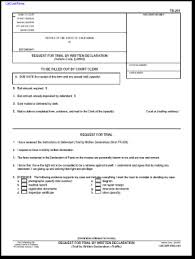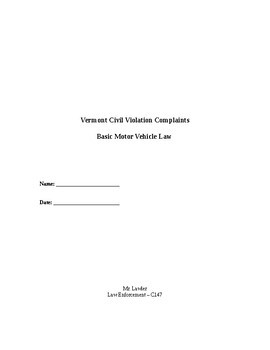Have you ever received a traffic ticket in Colorado and wondered, “Do I really need to go to court for this?” The answer, unfortunately, isn’t always a simple “no.” While Colorado’s traffic ticket system offers a few options for handling citations, sometimes a mandatory court appearance is unavoidable. This article will delve into the intricacies of mandatory court appearances for traffic tickets in Colorado, providing valuable information for every driver.

Image: www.2fixyourtrafficticket.com
Navigating Colorado’s traffic ticket system can be tricky. Understanding when a court appearance is mandatory and what your options are can save you time, money, and hassle. This guide will explore the various scenarios that can lead to a mandatory court appearance, the potential consequences of failure to appear, and the steps you can take to handle your ticket efficiently.
When is a Court Appearance Mandatory?
Not all traffic tickets in Colorado require a mandatory court appearance. The decision usually hinges on the severity of the offense and the circumstances surrounding the violation. Here are some common situations where a court appearance is required:
- Serious Traffic Violations: Offenses such as DUI/DWAI, reckless driving, driving without a license, and hit-and-run accidents often necessitate a mandatory court appearance. These offenses are considered more serious and require a formal hearing to determine liability and potential penalties.
- Traffic Warrant: If you fail to respond to a traffic ticket by the deadline, the court may issue a warrant for your arrest. A subsequent court appearance will be mandatory to address the warrant and the original offense.
- Contesting a Ticket: If you choose to contest a traffic ticket, you’ll be required to appear in court to present your case. This could involve challenging the validity of the ticket, presenting evidence of extenuating circumstances, or arguing against the officer’s observations.
- Court-Ordered Appearance: In some cases, the court may issue a specific order requiring you to appear for a hearing, regardless of the nature of the offense. This may happen when the court needs additional information or wants to determine your eligibility for specific programs like traffic school.
Understanding the Consequences of Non-Appearance
Failing to appear in court for a mandatory traffic ticket hearing can have significant consequences. These consequences can range from fines and license suspension to even imprisonment in severe cases.
- Higher Fines: Failing to appear in court usually results in a default judgment, meaning the court will automatically find you guilty and issue a higher fine than the original ticket amount.
- Driving Privileges Suspension: Non-appearance can lead to the suspension or revocation of your driver’s license. The severity of the suspension will depend on the nature of the offense and the jurisdiction. In extreme cases, your license may be revoked permanently.
- Arrest Warrant: If you fail to appear for a mandatory hearing or fail to address a warrant, the court may issue an arrest warrant for your apprehension. A warrant can lead to your arrest, even for minor offenses.
- Criminal Charges: In some cases, failing to appear for a traffic ticket hearing may lead to additional criminal charges, such as contempt of court.
What to Do When Faced with a Mandatory Court Appearance
A mandatory court appearance may seem daunting, but there are steps you can take to prepare and handle the situation successfully.
- Review the Ticket: Carefully read the information on your traffic ticket. Note the court date, time, and location. Also, identify the specific traffic violation you are being charged with.
- Contact the Court: If you have any questions about your court appearance or need to request a postponement due to a legitimate reason, contact the court clerk’s office as soon as possible. It’s best to contact the court in writing or electronically to have documentation of your communication.
- Prepare Your Defense: If you are contesting the ticket, take the time to gather any evidence or documentation that supports your case. This might include witness statements, pictures, or official records.
- Arrive Early: Plan to arrive at the courthouse at least 30 minutes before your scheduled court appearance. Allow time for parking, security checks, and navigating to the correct courtroom.
- Be Prepared to Pay Fees: Be prepared to pay any court fees associated with your appearance, as well as potential fines or penalties. It’s wise to have cash or a check with you just in case.
- Listen to the Judge and Court Officials: Pay close attention to everything the judge and court officials say during your appearance. If you have any questions, don’t hesitate to ask for clarification.
- Be Respectful: Maintain a respectful demeanor throughout your court appearance. Avoid arguing with the judge or other court officials. Treat everyone involved with courtesy and professionalism.

Image: www.teacherspayteachers.com
Exploring Your Options: Traffic School and Other Alternatives
In some cases, you may be able to avoid a mandatory court appearance by utilizing alternative options like traffic school. Here’s a breakdown of possibilities:
- Traffic School: If your traffic ticket qualifies for traffic school, you can often attend a course to avoid points being added to your driving record. This can potentially reduce insurance premiums and prevent license suspension. However, traffic school is not always available for all offenses, and you may have to pay a fee to participate.
- Contesting the Ticket: If you believe your ticket is invalid, you can choose to contest it in court. However, this can be a time-consuming process and requires preparation and a strong defense.
- Paying the Fine: If you agree with the ticket and prefer to avoid a court appearance, you can usually pay the fine online, by mail, or in person at the court clerk’s office. However, this option may still result in points being added to your driving record and higher insurance premiums.
Specific Considerations for Different Traffic Violations
The need for a court appearance varies significantly depending on the type of traffic violation. Here’s a brief overview of common violations and their typical requirements:
- Speeding Tickets: Most speeding tickets in Colorado do not require a mandatory court appearance. However, if the violation involves excessive speeding or you choose to contest the ticket, you may be required to appear in court.
- Parking Tickets: Parking tickets usually do not require a court appearance. You can typically pay the fine or challenge the ticket through specific procedures outlined by the city or county.
- DUI/DWAI: DUI/DWAI offenses always require a mandatory court appearance. These violations are serious and carry significant penalties, including fines, license suspension, and potential jail time.
- Reckless Driving: Reckless driving is a serious offense that usually requires a mandatory court appearance. The penalties for reckless driving can include fines, jail time, and license suspension.
- Hit-and-Run: Hit-and-run incidents are also serious offenses that typically necessitate a court appearance. These violations are often investigated thoroughly, and the consequences can be severe.
Mandatory Court Appearance For Traffic Ticket Colorado
Conclusion
Navigating Colorado’s traffic ticket system can be a complex process, especially when a mandatory court appearance is involved. By understanding the various scenarios that necessitate a court appearance, the potential consequences of non-appearance, and the options available to you, you can confidently handle any traffic ticket you receive. Remember, it’s best to seek legal advice if you have any questions or concerns about your specific case. By being proactive and prepared, you can avoid unnecessary hassle and ensure the best outcome for your situation.






